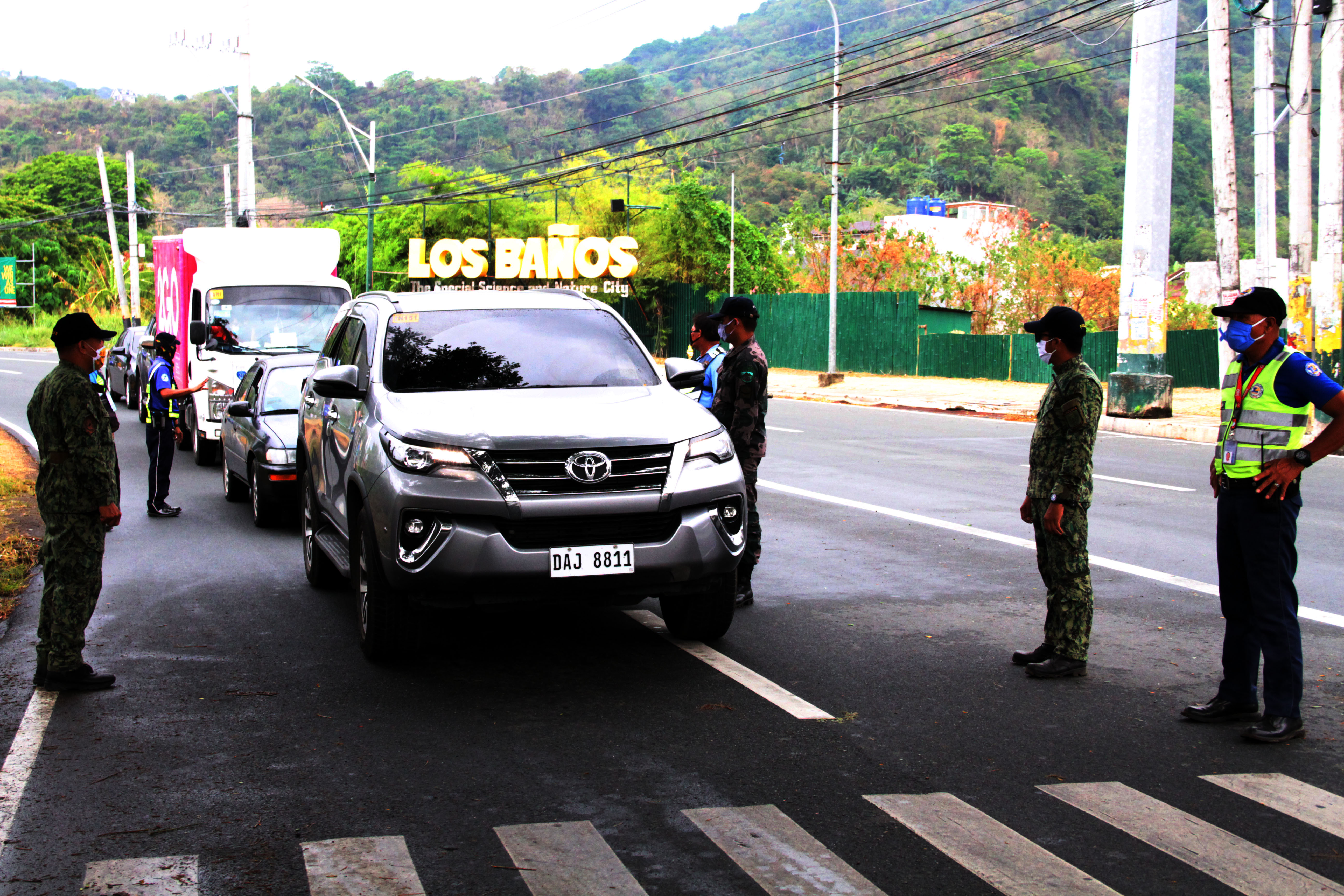Headline
Non-essential travel still banned under MECQ: Palace

FILE: Philippine National Police (PNP) personnel implement stricter checkpoint procedures at the entry and exit points in Los Banos, Laguna during Typhoon “Ambo” (Vongfong) on Friday (May 15, 2020). (PNA photo by Jess M. Escaros Jr.)
MANILA – Filipinos stuck in Metro Manila during the modified enhanced community quarantine (MECQ) until May 31 will be barred from returning to their respective provinces unless they are classified as “authorized persons outside residence” or APOR.
Presidential Spokesperson Harry Roque made this reminder as heavy traffic plagued Metro Manila’s main thoroughfares, including Edsa, on Saturday, first day of less strict MECQ.
Under the MECQ, there is still no public transport but private cars are allowed as long as only two people sit per row.
Roque, however, pointed out that under MECQ only essential travel by APORs will be permitted.
“Kung leisure po, hindi po pupuwede pa rin, unless tayo po ay may katungkulan. Iyong mga tipong bibisita sa ating mga kamag-anak, kung pupuwede po ay maiwasan po muna iyan kasi talagang wala pa pong ganiyang pahintulot ang IATF; nililimita pa rin po natin sa essential travel (If it’s for leisure, it’s still not allowed unless we have purpose there. If you want to visit your relatives, let’s try to avoid it first because we don’t have the permission of the IATF),” he said in an interview over DZBB on Saturday.
The Inter-Agency Task Force for the Management of Emerging Infectious Diseases (IATF-EID) is the decision-making body of the government on the coronavirus disease (Covid-19) health crisis.
Earlier, Roque said non-essential travels will need clearance from their respective local government units (LGUs).
Those living in areas declared as MECQ but work in areas declared as GCQ will also be allowed to travel as long as they are employed in an industry allowed to operate.
Interzonal travels are allowed between two areas under general community quarantine (GCQ) as long as safety protocols are enforced.
Employers are, meanwhile, encouraged to provide their employees with transport vehicles or accommodations.
All workers in healthcare, agriculture, agri-business, emergency response, food, security, banks, money transfers, funeral services among others are classified as APOR.
However, the IATF-EID has been regularly updating the APOR based on continuous discussions with the stakeholders.
Metro Manila and the provinces of Laguna, Bataan, Bulacan, Nueva Ecija, Pampanga and Zambales were placed under MECQ until May 31, based on Resolution 37 inked by the IATF-EID on May 15.
Only the cities of Cebu and Mandaue in Cebu province remained under ECQ.
All places nationwide that are not under ECQ or MECQ were placed under general community quarantine (GCQ).

